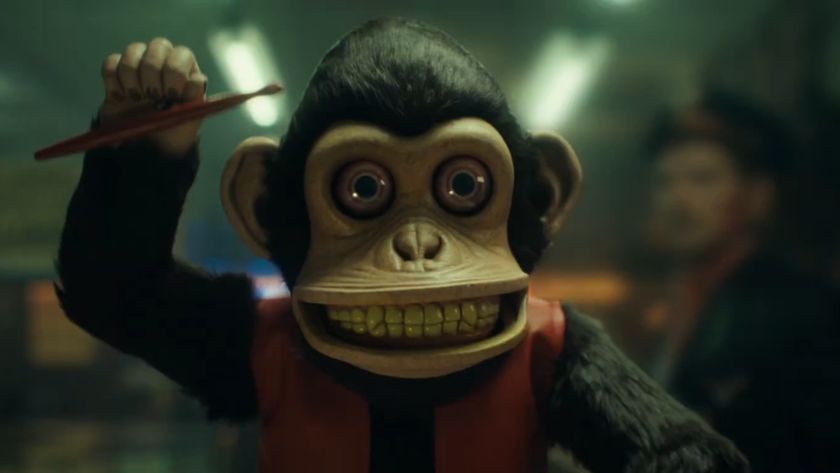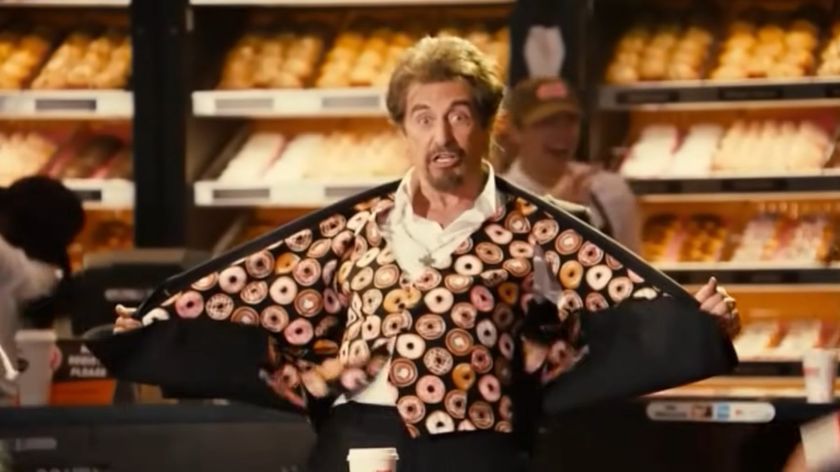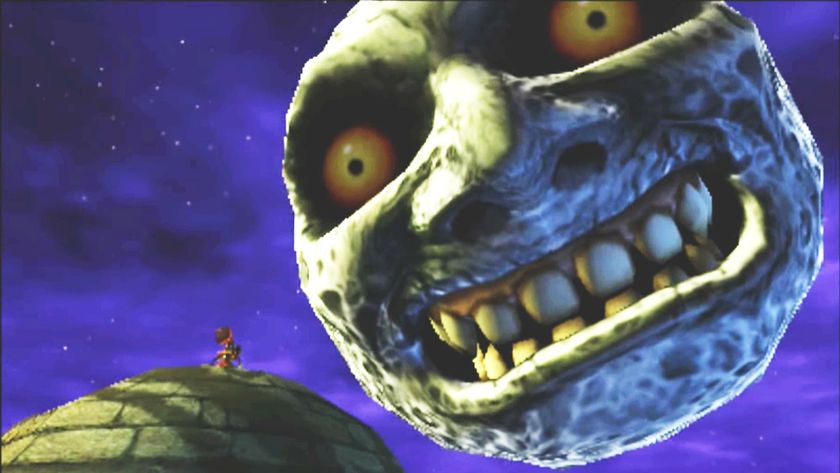Movies to watch on Blu-Ray and DVD: Beauty and the Beast, Logan, and more
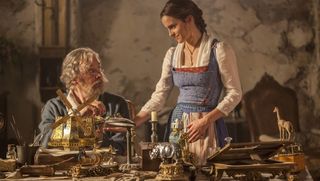
Out on July 10 and July 17
Emma Watson leads Disney’s live-action remake of a classic. Hugh Jackman makes his last stand as Wolverine.
Yes, here’s the new DVD and Blu-Ray releases coming out in the next two weeks. Click on for our reviews of Beauty and the Beast, Logan, Elle, Der müde Tod, Rita Sue and Bob Too, A Scanner Darkly, Spotlight on a Murderer, The Time Machine, Toni Erdmann, Underworld: Blood Wars, and The Damned: Don’t You Wish That We Were Dead.
For the best movie reviews, subscribe to Total Film.
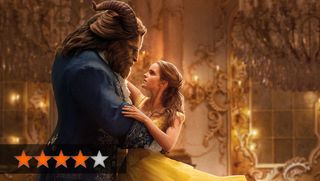
Beauty and the Beast
Until now, Disney’s live-action remakes of its cherished animated movies have preferred to tackle earlier ’toons – 1950’s Cinderella, 1959’s Sleeping Beauty and 1967’s The Jungle Book. Beauty and the Beast (1991), though, is a mere 26 years old. Too soon?
Two things are obvious from seeing original and remake together (available either in a double-pack or simply on their own). One is that the 1991 version has always been a classic, regardless of its actual age. The other is that audiences don’t care how long it’s been. Bill Condon’s movie is not only 2017’s biggest hit, but already on the cusp of the all-time top 10 at the global box office, proof that Disney’s formula for its back catalogue shows no signs of stalling.
It’s arguably Beauty and the Beast’s relative youth that explains the remake’s success. More than the previous nu-Disney films, the 1991 film is a rite of passage for Millennials. A live-action take was always likely to become a must-see, provided they got it right, so Condon’s film is a careful act of reverence. Not merely because of Emma Watson’s presence, it evokes the Harry Potter films in the way that everything is adroitly matched to the original to keep the fanbase on board.
Yes, there are new songs and occasional shifts in emphasis, but it’s the fidelity to BATB 1991 that remains most striking. In truth, Gary Trousdale and Kirk Wise’s animation in the earlier film was already halfway towards the textures of live-action.
That makes it relatively straightforward for Condon to replicate the ’toon’s look and feel: its elegant travelling shots, the impressive use of shadows, or the surprisingly robust action sequence at the climax. Likewise, the cast are guided to mimic the vocal inflections and facial gestures of their animated avatars. Luke Evans, especially, is an uncanny doppelgänger for the 2D Gaston.
Condon is a smart choice for director, here. He has form with fantasy (the Frankenstein-themed Gods and Monsters) and musicals (Dreamgirls), and he worked on the Twilight Saga, another franchise subject to a tonal risk
Until assessment before anybody yells action. While he’s undoubtedly a safe pair of hands, he’s not afraid to stamp a degree of freshness on to the material. The most radical thing here – at least, according to the nations who censored or banned the movie – is the outing of LeFou as a gay man in love with Gaston. Really, it’s a minor detail (and hardly progressive given Josh Gad’s camp performance) but it allows a sliver of realism into the story. Alongside a backstory for Belle involving the awful effects of plague, and a mention of Shakespeare, it places the story in a recognisable world.
If that risks reducing the surrealism and subtext of this most Freudian of fairytales, it helps Condon make the film relevant to the audience of 2017. There’s a marked upswing in the depiction of Belle as a feminist. Already no slouch in 1991, here she gets a fiery independence. Together with the gallantry of Dan Stevens’ Beast, it further codifies the chaste, post-Aids connotations of the animated version’s romance. No longer is the Beast a symbol of animal passion but a hirsute, hipster metrosexual, and a far better catch than Gaston, the entitled jock.
Ultimately, however impressive the execution, Condon’s version is a fan film. Its main achievement is to renew the animated version’s already glittering rep. There’s little surprise that Disney in 2017 can nail this, but it was a different story in 1991, when the studio was emerging from a period of creative unrest.
Made with palpable care and craft, Disney’s original deserved its place in history as the first animated feature to be nominated for Best Picture, raising the stakes for Hollywood animation. Ironically, in paving the way for Pixar, it sounded the death knell for 2D animation. Yet that makes BATB 1991 even more special – the bridge between Golden Age classicism and modern animation’s thrilling sophistication.
That Condon has changed so little is a testament to the choices made by Trousdale and Kirk, whose Disney-fication of the material remains unusually nuanced and sensitive. The biggest visual influence is surrealist auteur Jean Cocteau’s 1946 version of the story, La Belle Et La Bête – not the typical reference point for Disney. In a crucial change of emphasis to the source material and earlier adaptations, the Beast voluntarily lets Belle go without demanding her return, giving greater clarity to the character’s arc.
Best of all, inverting Disney’s penchant for cute creatures, here the animals stay mute while the household staff become a menagerie of talking pots and pans. Mrs. Potts and Lumière are so indelible a part of the story that it’s worth remembering they were invented for the 1991 film.
In the remake, they’re go-to roles for A-listers Emma Thompson and Ewan McGregor. No wonder: who wouldn’t want to sing ‘Beauty and the Beast’ and ‘Be Our Guest’? Whichever version of the film you watch, there isn’t a combo of sweet ’n’ silly to rival it in the entire Disney songbook.
EXTRAS: Featurettes, Deleted scenes, Extended songs, Music video (BD)
Director: Bill Condon; Starring: Emma Watson, Dan Stevens, Luke Evans; DVD, BD, 3D, Digital HD release: July 17, 2017
Simon Kinnear

Logan
“A man has to be what he is,” broods Alan Ladd, maxing the machismo in a clip from 1953 western Shane sneaked into Hugh Jackman’s last stand as Wolverine. Macho or not, his farewell to old mutton-chops translates Ladd’s dictate to movie terms.
Where Deadpool and Doctor Strange anchored their trips into saucy/psychedelic terrain in origin-tale tradition, Logan pleases because it has the guts to be what it aims for: an aggressive, soulful, stand-alone farewell with an f-bomb for every occasion.
True, X-franchise Easter eggs almost dilute its distinction, ranging from 2000’s X-Men (Statue of Liberty references) to 2013’s The Wolverine (Samurai swords). But the nods are kept subtle, never entangling Logan in continuity spaghetti. Nor are its intimacies muffled by badinage or bouts of city-trashing CGI.
When today’s surfeit of screen superheroes can leave even a series as original-feeling as Guardians of the Galaxy looking a little used by its pun-packed, CGI-stuffed sequel, Logan manages to deliver something fresh on the back of a sharpened character focus.
If it’s the character-piece flipside to X-Men: Apocalypse’s catastrophe-piece excesses, Mangold ensures his cast anchor it beautifully. Jackman turns in his meatiest lead, making full-bodied work of a man whose body is failing him (claw dysfunction included) on the borders of Mexico and life.
Poignant company comes from Patrick Stewart (ailing Prof. X) and Stephen Merchant (mutant-tracker Caliban), both offering warm contrast with the well-pitched business-like brutality of Boyd Holbrook’s mutant-hater Donald Pierce. Even Richard E. Grant shows no-ham restraint, though Mangold’s casting flair is best embodied by Dafne Keen as the sort-of offspring Logan is forced to protect: hard to tell what’s deadlier, her eyes or claws.
If the tone threatens to lurch off-leash with the entry of another nemesis, Mangold keeps even this horror-show twist anchored. With tragedies providing emo-ballast, and CGI held in reserve, a core theme of living/dying by the sword steadies the plot deep into the woods-y climax.
“A brand sticks,” Ladd’s Shane said about the psychological effects of killing. But in resisting any get-out clause for an on-point finale that cuts to the bone of Wolverine’s character, Logan emerges unbranded by superhero cliché. Even its cruellest stings carry the satisfaction of a conclusion done right.
The extras look pretty buff too, packing in a 72-minute documentary plus a black-and-white version of the film.
EXTRAS: Commentary, Deleted scenes, B&W version, Documentary
Director: James Mangold; Starring: Hugh Jackman, Patrick Stewart, Dafne Keen; DVD, BD, Digital HD, 4K UHD release: July 10, 2017
Kevin Harley

Elle
With typical audacity, Paul Verhoeven (RoboCop) directs an uncompromising take on modern feminism with a rape whodunit that flirts with the line between sex and violence. Isabelle Huppert gives a career-redefining central performance as Michèle, a successful CEO who is sexually assaulted, and then methodically sets out to identify her mystery assailant.
Exploring themes of control and consent, Verhoeven deliberately plays with audience sympathies to challenge the concept of victimhood, and in doing so achieves a uniquely powerful – and empowering – thriller.
EXTRAS: Feature, Interview
Director: Isabelle Huppert; Starring: Isabelle Huppert, Laurent Lafitte, Anne Consigny; DVD, BD release: July 10, 2017
Matt Looker
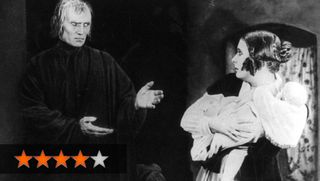
Der müde Tod
When her fiancé dies, a woman is given three chances by Death (Bernhard Goetzke) to save him from parallel tragedies in Arabia, Venice and China. Despite being severely dated by its racial stereotyping, Fritz Lang’s gothic fable remains a prime example of ’20s German Expressionist cinema – inventive in its effects, ambitious in its scale, and pessimistic in its depiction of fate and spirituality.
The English title – Destiny – proved apt, as Lang’s vision became a major influence on Buñuel’s surrealism and Bergman’s The Seventh Seal.
EXTRAS: Commentary, Video essay, Booklet
Director: Fritz Lang; Starring: Lil Dagover, Walter Janssen, Bernhard Goetzke; Dual format release: July 17, 2017
Simon Kinnear

Rita, Sue and Bob Too
Alan Clarke’s classic comedy of shagging and showdowns gets a 2K restoration by the BFI to celebrate the film’s 30th anniversary. Adapted by Andrea Dunbar from her own play, this slice of ’80s society contrasts estate life with middle-class suburbia, played for both bawdy comedy and disheartening drama, and all sharply observed.
An extensive Making Of featuring new cast and crew interviews offers entertaining insight into the film’s production, great value alongside the film’s high- definition presentation.
EXTRAS: Making Of, Gallery, Booklet
Director: Alan Clarke; Starring: Siobhan Finneran, Michelle Holmes, George Costigan; Dual format release: May 22, 2017
Matt Looker
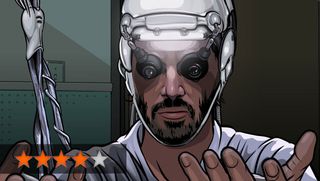
A Scanner Darkly
In a future dystopia, with 20 per cent of America addicted to the dangerously psychoactive Substance D (“You’re either on it or you haven’t tried it yet”), Keanu Reeves’ undercover narc finds reality veering dangerously out of control after he gets a little too close to the action.
Among the best and most faithful movie adaptations from prince of paranoia Philip K. Dick, Richard Linklater’s rotoscoped surveillance state identity crisis is as chilling as it is hypnotic and funny – a real head trip.
EXTRAS: Commentary, Featurette, Lobby cards
Director: Richard Linklater; Starring: Keanu Reeves, Winona Ryder, Robert Downey Jr.; Triple Format release: May 8, 2017
Ali Catterall
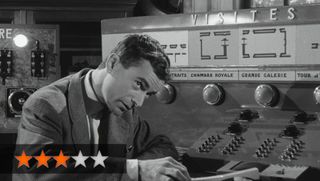
Spotlight on a Murderer
Having achieved one of the most poetically scary of horror movies with Eyes without a Face, director Georges Franju relaxed with this gothic spoof of a murder mystery. In a Breton chateau, a terminally ill count (Pierre Brasseur) conceals himself in a hidden closet to die.
Since there’s no body, his heirs (including the young Jean-Louis Trintignant) must legally wait five years to inherit. Then, one by one, they start dying off. Every cliché of the Christie-esque genre is gleefully exploited.
EXTRAS: Featurette, Booklet
Director: George Franju; Starring: Pierre Brasseur, Pascale Audret, Marianne Koch; Dual format release: May 29, 2017
Philip Kemp
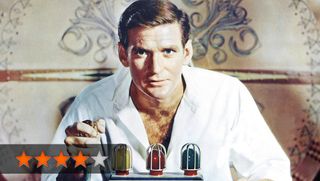
The Time Machine
Best remembered for its innovative time-lapse effects (and for not being the rubbish 2002 Guy Pearce version), George Pal’s Metrocolor sci-fi still stands out among the ’60s B-flick crowd. It might mess with the book – not least in casting lantern-jawed Aussie Rod Taylor as H.G. Wells – but Pal’s film preserves plenty of the text’s wide-eyed tone, brass-edged textures, and sharp, angry social politics.
A decent doc, a handsome set of art cards, and a crisp Blu transfer help roll the clock back 60 years.
EXTRAS: Documentary, Art cards
Director: George Pal; Starring: Rod Taylor, Alan Young, Yvette Mimieux; Triple format release: May 8, 2017
Paul Bradshaw
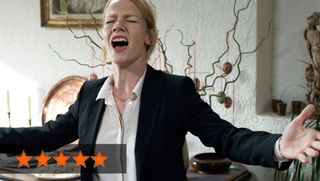
Toni Erdmann
German prankster Winfried (Peter Simonischek) tries to reconnect with estranged daughter Ines (Sandra Hüller) by invading her work life in Romania disguised as his unhinged alter ego Toni Erdmann, a bumbling corporate life-coach with big hair, fake teeth and bad jokes.
Writer/director Maren Ade’s cringe-com may have sadly missed out on the Best Foreign Film Oscar this year, but it’s a masterclass in balancing awkward hilarity with desperate sadness. A truly insightful and original portrait of a family seeking (hard-earned) reconciliation, its grace notes linger no less than the gags.
EXTRAS: Interviews, Outtakes
Director: Maren Ade; Starring: Sandra Hüller, Peter Simonischek, Michael Wittenborn; DVD, BD, Digital HD release: May 29, 2017
Tim Coleman
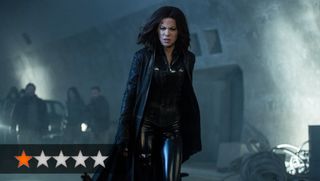
Underworld: Blood Wars
Somehow on its fifth entry, you can’t fault werewolves-vs-vampires action series Underworld for consistency – each entry is worse than the last. Opening with an apologetic recap (subtext: we know you didn’t see the last one…), the high point of the threadbare plot sees Kate Beckinsale’s Selene get a new winter coat.
Full of familiar faces (Charles Dance, Lara Pulver, Tobias Menzies) who should know better, the sole saving grace is a mercilessly brief 91-minute running time.
EXTRAS: Featurettes
Director: Anna Foerster; Starring: Kate Beckinsale, Theo James, Tobias Menzies; DVD, BD, 3D, UHD, Digital HD release: May 29, 2017
Jordan Farley
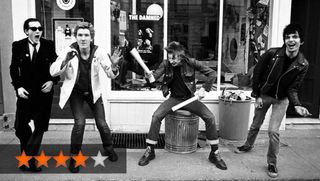
The Damned: Don’t You Wish That We Were Dead
If the history of The Damned is lesser told than other punk tales, consider the oversight fixed in style. Lemmy director Wes Orshoski’s doc lacks cohesion, but it’s a rude and riotous portrait of pioneers who courted chaos through multiple break-ups and rejigged line-ups.
Ranging from toilet humour to tantrums, Orshoski anchors his focus in splashy portraits of a cult group’s characters: the comparison of Captain Sensible to great absurdist comedians sums it up.
EXTRAS: Featurettes, Interviews, Live footage
Director: Wes Orshoski; DVD, BD release: May 29, 2017
Kevin Harley
The Total Film team are made up of the finest minds in all of film journalism. They are: Editor Jane Crowther, Deputy Editor Matt Maytum, Reviews Ed Matthew Leyland, News Editor Jordan Farley, and Online Editor Emily Murray. Expect exclusive news, reviews, features, and more from the team behind the smarter movie magazine.
Most Popular





